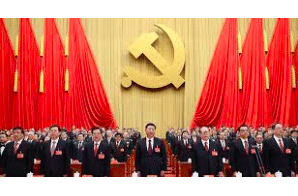Total surrender. That’s what the New York Times reported the Chinese government expects of its business sector, following Beijing’s recent signals not to resist government influence.
Curtis Milhaupt, the William F. Baxter-Visa International Professor of Law at Stanford Law School, has been researching China’s state capitalism for nearly a decade, and worries that U.S. efforts to respond to its challenges have been ineffective. His new study, detailed in the latest issue of the Journal of Legal Studies, together with his publicly filed comments on a new U.S. law aimed at countering Beijing’s influence over Chinese firms accessing the U.S. capital market, suggest why.
Milhaupt sees two main challenges: The first has to do with what the U.S. actually knows—and, more importantly, doesn’t know—about how much power the Chinese government and Communist Party exert over Chinese companies. The second concerns whether the United States alone can successfully manage China’s distinct form of capitalism.
“It’s important to recognize that the channels of party-state influence in the corporate sector are actually very complex and subject to some universal constraints such as agency problems and market discipline,” says Milhaupt. His previous research has detailed the ownership structures of Chinese state-owned enterprises (SOEs) and has shown that the Chinese government has exercised less control over these firms than is often assumed. “But at the same time, global regulatory systems never contemplated the partial fusion of political and economic interests we see in many Chinese companies.”
Read the full article. https://law.stanford.edu/stanford-lawyer/articles/responding-to-chinas-state-capitalism/




